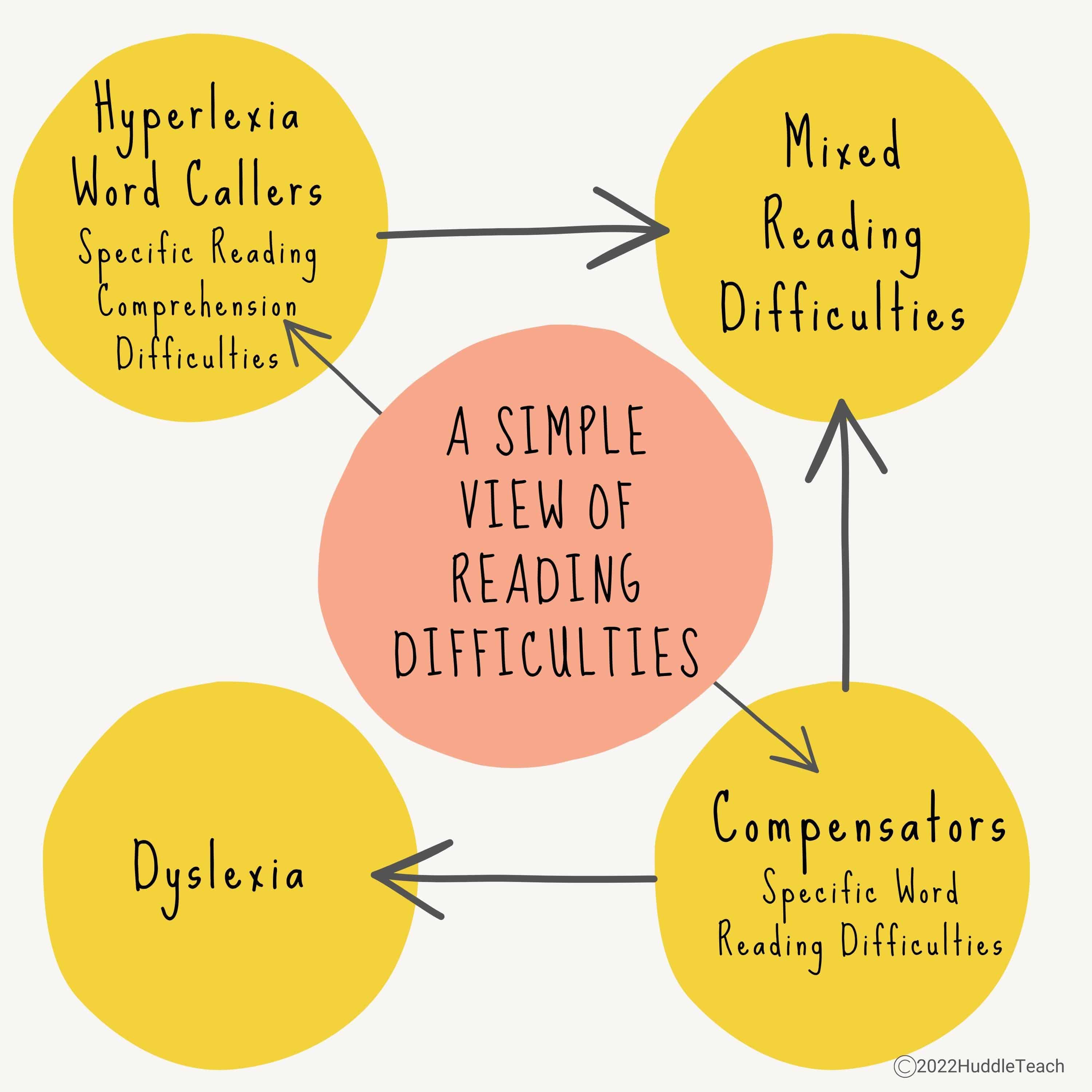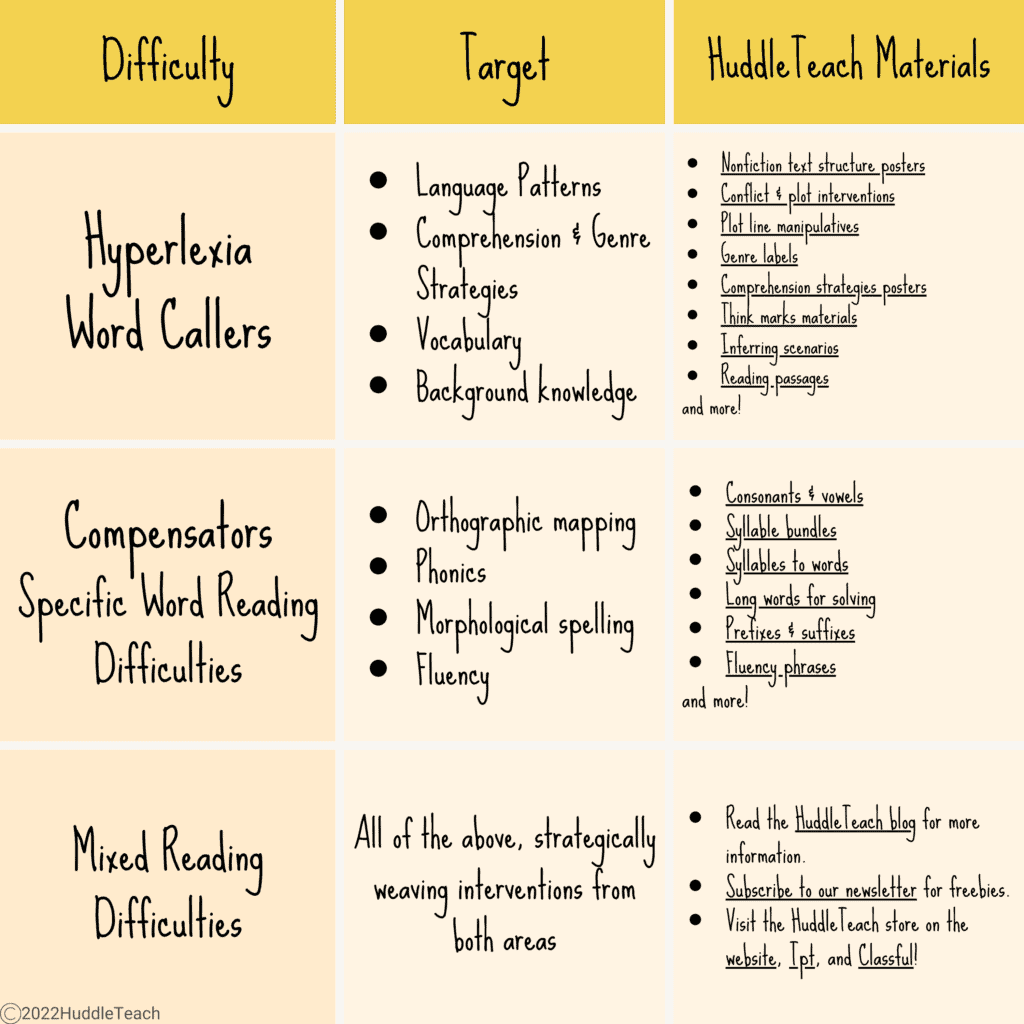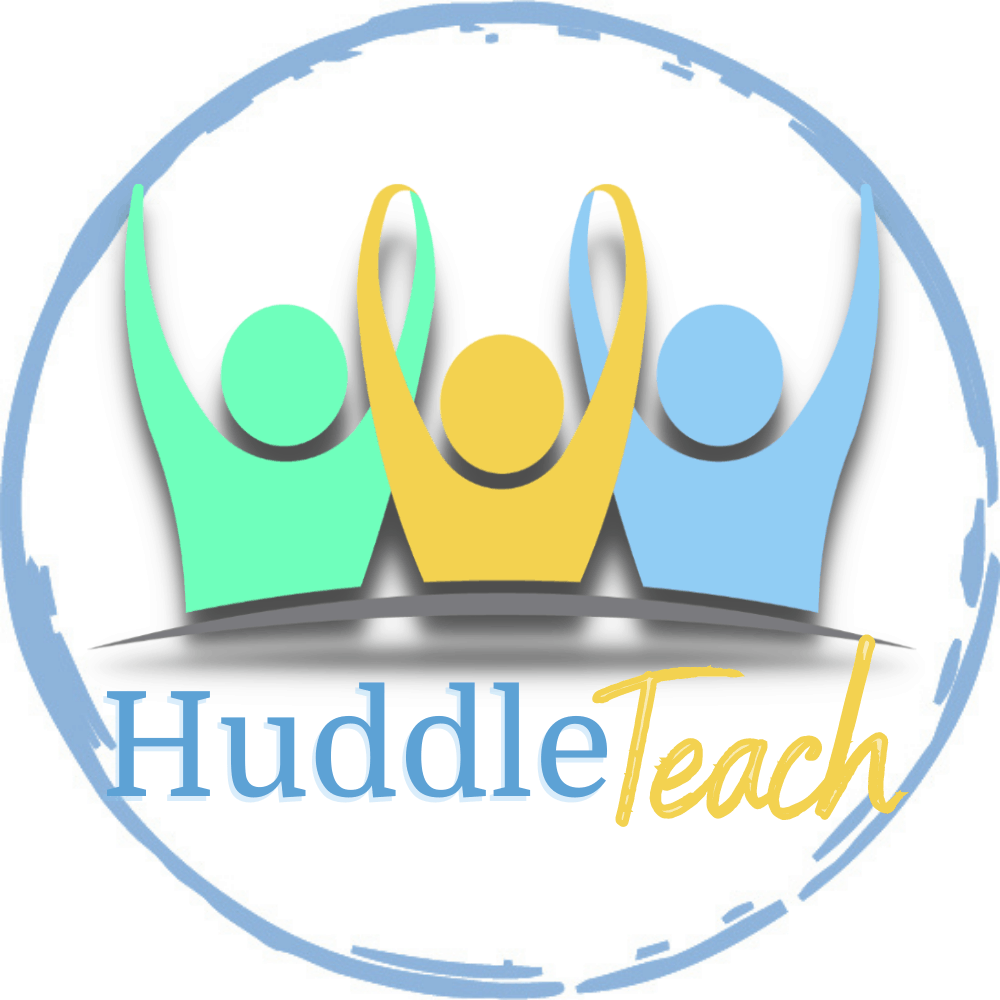Identify underlying issues to move students forward!

By the time older readers come to us for help, their academic achievement, self worth, and motivation have become imbued with layers of literacy issues. It is easy for us as teachers to become overwhelmed in the journey to help them. Identifying the root issue provides an efficient path to success for each struggling reader. Here are some of the most common patterns:
Word Callers / Hyperlexia / Specific Reading Comprehension Difficulties
These older students may have just been identified as needing support. They demonstrate adequate or above level decoding skills, so they have been able to hide under the radar for a long time. Even parents may have trouble understanding their child is a struggling reader. They sound like great readers! The struggle, though, is comprehension.
As with any issue, there is a range of severity. At the least impacted level, these students may have attention issues in which they are simply not focused on the words they are reading. More often, though, students are missing the meaning of the text due to lack of vocabulary, background knowledge, and/or a broader language issue.
Note: Hyperlexia is often used as a neurodevelopment term. In that sense, it can co-occur with autism; however, not all hyperlexic children are autistic, and not all children with autism are hyperlexic. It is also important to know that many students learning English as an additional language may be hyperlexic until their vocabulary knowledge catches up with their word-solving skills.
You’ll know your student is a more severe word caller if he or she also has difficulty understanding information presented verbally, such as a read aloud or instructions.
You may have a word caller if your student
- likes to read aloud, yet cannot remember what was read
- attends to punctuation with ease
- reads text accurately
- has unexpectedly low scores on comprehension assessments
- is advanced in solving long words, but behind in understanding the meaning of the text
Compensators / Specific Word Reading Difficulties
This is another set of students who are often identified in later years as needing support. They have performed as “adequate” for years. They tend to be brighter students who have relied on content to get the gist of what they are reading. These students achieve below their potential, however. With stronger decoding and fluency skills, their comprehension would be deeper and their spelling and writing would be stronger.
You may have a compensator if your student
- seems smarter than their reading ability to read leads you to believe
- relies on the context to guess words, or guesses based on the first few letters of a word
- needs many exposures to words before remembering them
- has weak spelling and written expression skills
- shows sporadic scores in reading related assignments
- hates to read aloud or to read at all
- exhibits avoidance behaviors with reading and writing assignments
Mixed Reading Difficulties
These students come to us with years of frustration. They are also the most difficult to accelerate learning as their deficiencies occur in both word solving and comprehension. They lack the ability to both decode longer words and understand the meaning of the text. A glance at their school records will most likely confirm that they have received reading support for years. These students are what most people think of within the category struggling reader.
You may have a student who demonstrates mixed reading difficulties if he or she
- has a keen dislike for anything related to reading
- laboriously solves words
- cannot begin to decipher the meaning of the text
- has a low fluency score
- has a low comprehension score
- chooses books with heavy visual support when required to complete reading
- has a history of “failing” in language arts classes or any class with heavy reading requirements
Where Dyslexia Fits
Until 2015, the term dyslexia was reserved for a doctor’s diagnosis. That year, the U.S. Department of Education approved the use of the word within an educational context. Your classroom may now have more students with that label (vs. specific learning disorder in reading) because of this. Students who receive this diagnosis are those who have poor word-level reading skills despite adequate effort, learning opportunities, and normal language skills. In other words, it’s an unexpected difficulty in word solving as their language comprehension skills are adequate or high. Dyslexia fits within the larger category of Compensators / Specific Word Reading Difficulties.
There are assessments given by certified professionals that indicate the presence of dyslexia. Students who are dyslexic require very specific instruction, such as Take Flight or Wilson Reading System.

Interventions for your struggling reader
This is truly the simple view of reading difficulties. As secondary reading specialists, we understand that there are other issues that play into the struggle, such as attention, motivation, and other executive functioning skills. Arguably, though, those are often the result of – rather than the direct cause of – years of being a struggling reader. No matter, any intervention at the word and/or comprehension level should be paired with instruction that includes growth mindset, Frostig’s Success Attributes, executive functioning skills, and more.

It’s never too late
No matter the reason for the struggle, these students have found their way to you. We are here to support your work as you untangle some of the knots with these children. Download the linked pdf above for correlation to HuddleTeach materials. Be sure to subscribe to our weekly newsletter for helpful information and freebies!

